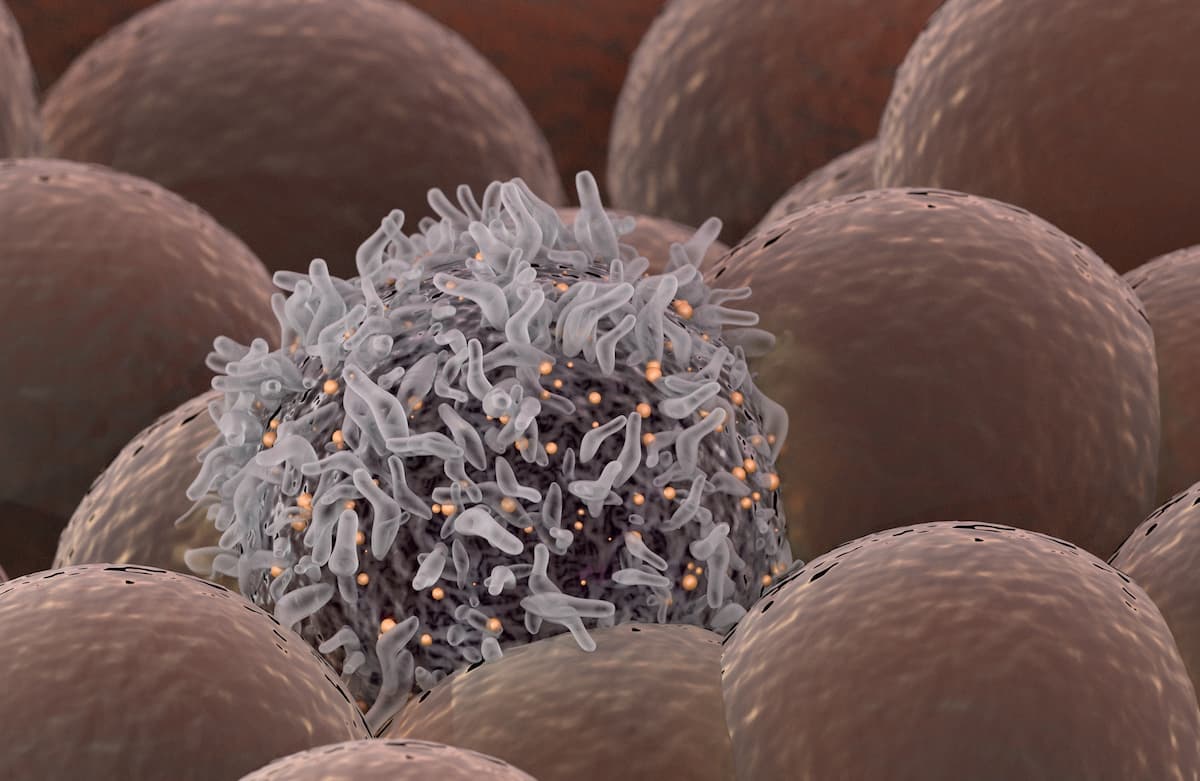Cohort 7 of Novel MEK Inhibitor Trial Completed for MAPK Pathway-Driven Tumors
PAS-004 was deemed safe and tolerable when given in 37 mg capsules, so the trial will proceed to administer the agent in 45 mg capsules.
PAS-004 was deemed safe and tolerable when given in 37 mg capsules, so the trial will proceed to administer the agent in 45 mg capsules.

The next-generation macrocyclic oral MEK inhibitor PAS-004 achieved positive pharmacodynamic, pharmacokinetic, and safety results in patients with MAPK pathway-driven advanced solid tumors with a documented RAS, neurofibromatosis type I (NF1), or RAF mutation, or in those in which prior BRAF/MEK inhibition had failed patients, in cohort 7 of a phase 1 trial (NCT06299839), according to a press release from the developer, Pasithea Therapeutics.1
PAS-004 given in 37 mg capsules was deemed safe and well-tolerated, with no dose-limiting toxicities (DLTs), and no treatment-related adverse events (TRAEs) observed during the DLT period. Notably, the Safety Review Committee recommended proceeding to cohort 8, which evaluated PAS-005 in 45 mg capsules, without modification.
Additionally, patient plasma data demonstrated that PAS-004 inhibited phosphorylated extracellular signal-regulated kinase (pERK) at a level of 80% near Cmax at steady-state. At Cmin, 24 hours postdose, individual patient plasma data showed PAS-004 inhibiting pERK at a level of 60% at steady-state.
Pharmacokinetics revealed linear pharmacokinetics and dose-proportionality, and a pharmacokinetic curve with a Cmax/Cmin ratio less than 2. The area under the curve was 6690 ng*h/mL, the Cmax was 313 ng/mL, and the Cmin was 260 ng/mL.
“We are highly encouraged by the initial safety data generated in cohort 7 (37 mg capsules), where 0 treatment-related adverse events have been observed during the DLT period. Furthermore, [pharmacodynamic] data demonstrates the pharmacological profile we believe is necessary to achieve consistent pathway inhibition over the 24-hour dosing period, while avoiding both periods of excessive suppression and periods of insufficient target engagement,” Tiago Reis Marques, chief executive officer of Pasithea, said in the press release.1 “We believe this balanced profile will be critical for achieving clinical efficacy while minimizing the most commonly observed adverse events associated with MEK inhibitors. We believe PAS-004 is particularly well suited for the treatment of diseases involving the MAPK pathway that require chronic dosing over long periods of time, where sustained long-term pathway suppression at safe and well-tolerated doses is required.”
The trial had an estimated enrollment of 48 patients who were enrolled to receive PAS-004 capsules in sequential dose escalation.2 There were 8 cohorts, and the dose progression was as follows: 2 mg, 4 mg, 8 mg, 15 mg, 22 mg, 30 mg, and 37 mg. PAS-004 capsules were presented in 1 mg, 4 mg, and 10 mg strength capsules, which were intended for oral administration once daily.
Eligible patients were 18 years or older with histological or cytological confirmation of MAP pathway-driven advanced solid tumors that could not be surgically resected and had failed or were ineligible for standard of care therapy, had no available treatment options with known clinical benefit, and had documented evidence of RAS, NF1, or RAF mutations. Additional enrollment criteria include an ECOG performance status of 0 or 1, an estimated life expectancy of at least 12 weeks, and adequate organ function.
Reasons for exclusion included prior receipt of chemotherapy, radiotherapy, major surgery, targeted therapy, immunotherapy, or other antitumor treatment within 21 days of enrollment or five half-lives of the administered therapy; known or active central nervous system metastases; unresolved toxicity from prior antitumor therapy; active conditions affecting PAS-004 absorption, active interstitial pneumonia, and impaired cardiac function or cardiac disease.
The primary end points of the trial were DLTs, AEs, AEs leading to discontinuation, hematology laboratory parameters, and clinical chemistry laboratory parameters.
Previously, positive interim data with PAS-004 from this trial were shared, showing that the agent led to a disease control rate of 71.4% in patients with BRAF-mutated tumors who achieved stable disease or partial responses.3
References
- Pasithea Therapeutics announces completion of cohort 7 in ongoing phase 1 trial of PAS-004 in advanced cancer patients, with positive safety, pharmacokinetic (PK), and pharmacodynamic (PD) data. News release. Pasithea Therapeutics. November 24, 2025. Accessed November 24, 2025. https://tinyurl.com/mr3k6kpw
- PAS-004 in patients with advanced solid tumors. ClinicalTrials.gov. Updated August 21, 2025. Accessed November 24, 2025. https://tinyurl.com/mrx6p84h
- Pasithea Therapeutics announces positive phase 1 data including partial response, demonstrating monotherapy clinical activity and favorable safety profile for PAS-004 in advanced cancer study. News release. Pasithea Therapeutics. November 20, 2025. Accessed November 24, 2025. https://tinyurl.com/2uxbyc6m
How Supportive Care Methods Can Improve Oncology Outcomes
Experts discussed supportive care and why it should be integrated into standard oncology care.